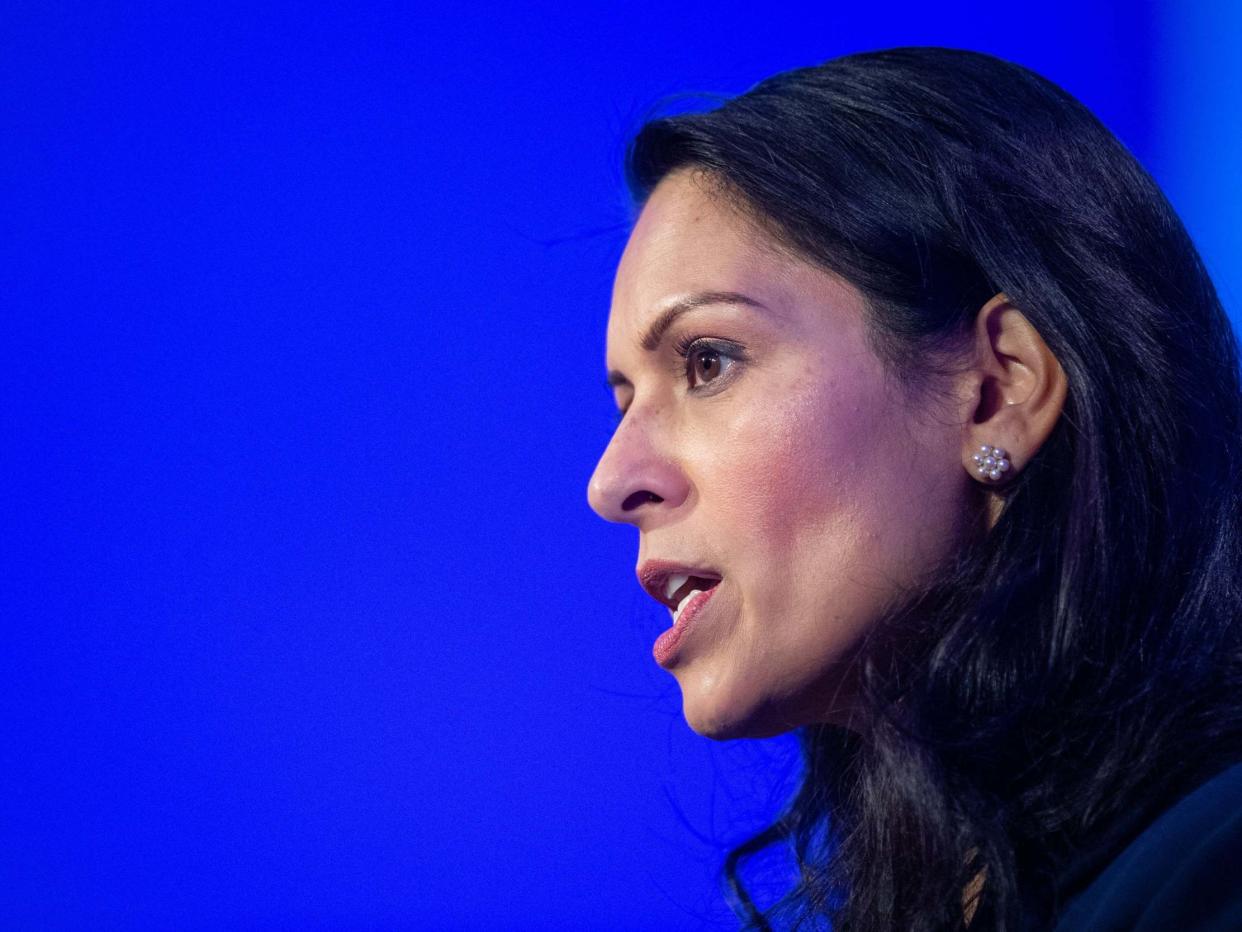Stop pointing fingers, Priti Patel, you have created an environment in which people traffickers thrive

Home Secretary Priti Patel
( )Following the deaths this week of a family of four trying to cross the English Channel, Home Secretary Priti Patel attempted to capitalise on the tragedy by placing the blame at the feet of people-traffickers. Her comments echoed those she made just two months ago after the death of a 16-year-old boy trying to cross the Channel, save for the adjective “abhorrent†being updated to “callous†as a way to describe “the criminal gangs who exploit vulnerable peopleâ€.
Publishing generic press releases in the wake of a tragedy and pointing fingers at nameless, faceless entities that operate in the shadows is an easy way to deflect attention from one’s own failings and policies which have undoubtedly contributed to the deaths. With every loss of life, lawyers, campaigners, charities and specialist groups dealing with migrants and asylum-seekers have warned the government that the primary solution to the issue is the creation of safe and legal routes to the United Kingdom.
Rather than concede that this might actually be a workable solution, the government has instead explored more unconventional methods, such as establishing floating immigration centres on disused ferries, creating asylum processing centres on far-flung islands and even developing a wave machine to push dinghies back to the French coast.
The absurdity of these proposals demonstrate an absolute unwillingness to accept the basic humanity of those seeking to come to the UK, whether that is because they are fleeing war, persecution and natural disasters, or in order to escape poverty, which can often be traced back to Britain’s own interventions in the countries they come from. A hardline approach will not deter those who feel that they have no choice but to continue their journey.
Analysis by PA Media revealed that more than 7,400 people arrived in the UK in small boats this year, nearly four times as many as in 2019. The deaths this week of Rasoul Iran-Nejad, Shiva Panahi and their two children, Anita and Armin, are the latest of almost 300 who have died crossing the Channel in the past 20 years, according to research by the Institute of Race Relations. This figure includes Niknam Masoud, whose body was found on 23 August 2019 wearing a single swimmers’ flipper and a backpack with plastic bottles strapped to it as a crude flotation device. Mr Masoud had tried to swim the Channel to reach the UK. Perhaps he hadn’t been able to afford to pay a smuggler to take him, but that did not stop him trying to cross the dangerous stretch of water on his own.
The reality is that the profitability of the smuggling business is directly proportionate to the severity of the restrictions imposed by the government. The more formidable the hurdle to crossing, the higher the demand for those who can assist them to overcome it. The government is creating the very environment in which the smugglers thrive by exploiting those who would not be so vulnerable if safe and legal routes to entering the UK were available to them. It is this symbiotic relationship between the rule-makers and the rule-breakers that must be dismantled if we wish to avoid further tragedies off our shores.
In its efforts to shift blame from its own policies, the government has also repeatedly sought to attack “activist lawyers†or “lefty lawyersâ€, with Patel equating them with traffickers as those who profit from the system. Her rhetoric in this respect has been widely criticised as endangering the lives of legal professionals by hundreds of lawyers, the Attorney General, the Lord Chancellor and counter-terrorism police. Her language not only serves to undermine the rule of law but further dehumanises those we represent as being unworthy or undeserving of having access to the courts to challenge the legality of her life-threatening decisions. While it may come as a shock to some that lawyers are paid for their services, the words “profitability†and “legal aid†rarely go hand-in-hand.
While listening to the home secretary, it may seem like lawyers have superhuman abilities, but one power we do not have is to create safe and legal routes for those seeking to come to the UK. Fortunately, Patel and her colleagues do have that power. Until they choose to exercise it, we will continue to hold them to account for breaking the law and jeopardising the safety of vulnerable people like those who drowned this week.
Fahad Ansari is the principal solicitor and director of Riverway Law, which specialises in immigration and nationality law. He has been involved in community work around the War on Terror and Islamophobia for almost two decades
Read more
Deaths of children in the Channel must shock Boris Johnson into action

 Yahoo News
Yahoo News 
